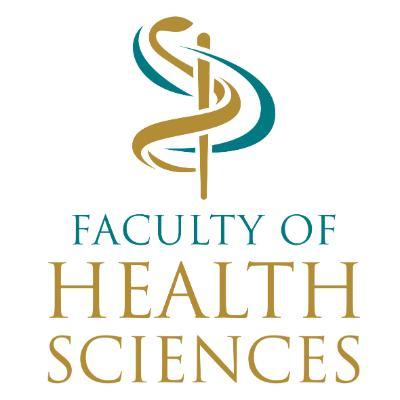New NRF SARChI Chair to Drive Pharmaceutical Innovation and 21st-Century Therapeutics in Africa
- FHS Communications
Professor Yahya Choonara has been awarded a Tier 1 South African National Research Foundation (NRF) / Department of Science and Innovation (DSI) SARChI Research Chair in ‘Prototyping 21stCentury Therapeutics in Advanced Drug Delivery, Nanomedicine and Regenerative Medicine.”
The Chair is based in the Department of Pharmacy and Pharmacology at the University of Witwatersrand. As a pharmaceutical scientist who co-founded the Wits Advanced Drug Delivery Platform (WADDP) research unit (/waddp), his research focuses on enhancing the therapeutic efficacy and minimizing the harmful side-effects of drugs (or other bioactives), enables the introduction of new classes of therapeutics, and repurposes suboptimal drugs that may be considered undevelopable into patient-centric therapeutics.
Professor Choonara says this Chair will further expand his work in the pharmaceutical sciences in South Africa, on the continent, and internationally to build deeper partnerships with other renowned institutions and research groups working in this domain. His aim is for the SARChI Chair program to continue leading the pharmaceutical sciences research agenda for Low and Middle-Income Countries (LMICs).
Resolving the gaps in access to quality medicines remains a massive injustice in the context of LMICs –highlighted by the World Health Organisation’s (WHO) statement on medicines access for LMICs – to promote access to basic and advanced medication. Choonara says that developing local expertise in pharmaceutical sciences to enhance research, development, and production is a way to ensure better access to innovative medicines for diseases that disproportionally affect LMICs.
For example, medicines in three therapeutic areas, i.e., Neurotherapeutics, Infectious Diseases, and Oncology, have several unmet therapeutic needs for patients in LMICs. Choonara says that creating an ecosystem of innovation, entrepreneurship, and technology transfer in the pharmaceutical sector will help build our local product development capacity, eventually limiting reliance on importing innovative medicines and encouraging local pharmaceutical manufacturing of specialized medicines.
Whilst grounded academically, his research Chair program remains translational, leading to intellectual property (IP) generation as a bedrock for significant macroeconomic benefits to the country. “Conducting research firstly on our local health priorities in South Africa and the continent, and adapting existing medicines for LMIC contexts provide a pivotal benefit to society,” he adds.
This will also expand South Africa's pharmaceutical sciences research and innovation capacity and further boost our country’s international research standing in this area of research. Sharing his vision for the Chair program, he says, "The research will produce novel 21st-century medicines in therapeutic areas of high impact, firstly for our local public health context but that is also globally applicable. Implementing a holistic program that interlocks research with human and infrastructure capacity development with academia-industry partnerships will achieve this. The Chair program will do this by drawing the best postdoctoral fellows and researchers in South Africa to work on projects that are at the forefront of the field and tackle megatrends through knowledge transfer, mentorship, and pharmaceutical product development training initiatives.”
Choonara, who was also recently appointed as the International Pharmaceutical Federation (FIP) PharmaBridge Liaison for the African Region, says he wants to continue enhancing South Africa's reputation and the work his research unit does as a leading African partner in the pharmaceutical sciences for regional and global collaboration. His SARChI Chair program and involvement within the FIP structures further demonstrate the world-class leadership for pharmaceutical sciences research and innovation in South Africa and the region. He says both initiatives will advance the nurturing of the next generation of pharmaceutical professionals that he continues to mentor at the WADDP.


